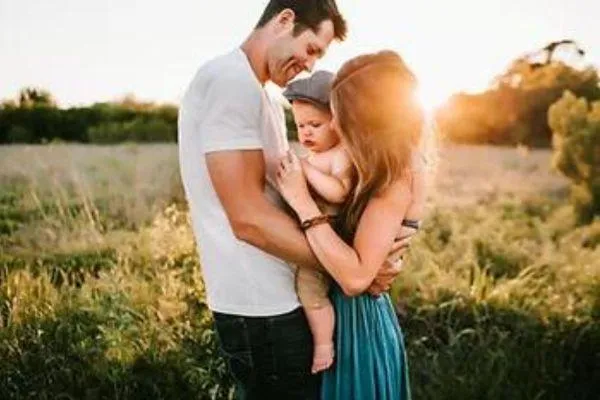
Three ways to more harmonious family relationships
What words come up for you when you think about your family when you were growing up?
Our parents/care givers are our first role models and who we looked up to to give us love, comfort and security.
What we soak up between the ages of 0-7 years old at home, in school and from your wider community is scientifically proven to have an affect on us in our adult lives.
You might be consciously aware of moments or people that determine how you think and behave now but if not there will be memories or experiences logged in your subconscious still.
So, hopefully it's words such as loving, supportive, caring, kind, accepted, trusted, non judgemental that come up for you. Hopefully your parents/ caregivers were a permanent in your life and showed you guidance, how to forgive, the importance of having respect for others and belonging.
Hopefully for you family meant wanting the best for each other, keeping each other in check, seeing past a quarrel and forever holding you in their hearts.
So based on this, here's my thoughts on maintaining harmonious family relationships:
1. Always have an open heart 💖
You most probably remember times when people in your family didn't see eye to eye. Just because we're related by blood doesn't mean that we have the same mindset. There are easy relationships and there are ones that need more work.
Hushed tones and not speaking to people causes anxiety. It's better for everyone if we strive to react to tensions from a place of love, empathy and an open heart.
The people that cause us to constantly react are usually the ones who have something to teach us. They are giving us the opportunity to dig deeper and really think about our own actions and feelings.
Have you got into a pattern of behaving a certain way with them?
Do you get dragged into the drama?
Do you let frustrations or resentment creep into the moments you spend together?
A technique to use before you next see the person is to think of all their positive qualities.
What are their strengths?
What are their good intentions?
Can you see them in a more positive light?
Can you use empathy to understand where they are coming from?
Visualise the conversation or meeting going well.
Let go of all your preconceptions and keep an open mind so that you are able to control your reactions. Do not lash out or let your words or a strained tone of voice show up. Instead digest what you are met with so you can react in a more controlled way.
Do whatever you can to break the pattern. Small changes can help you rebuild trust and goodwill.
2. Honest communication 💖
Talking openly and honestly about differences keeps everyone feeling safe and comfortable. There are several scenarios where honest communication can help:
Differences of opinions
Find out what the difference of opinion is by asking open questions. Try to understand their perspective. Be curious.
Difficult behaviours
Taking an individual to one side or having a conversation on the phone before you meet up means you can lovingly explain how uncomfortable you can feel in certain situations with them.
Speak from a place of love. Be non judgemental. Ask if you can help or support them in some way. Ask them why their behaviour is as it is in certain situations without attaching blame or attacking them.
Shift your perspective from needing them to meet your needs and instead try to meet theirs in order to strengthen your connection with them.
Family Roles
Often in families we have taken on or been given roles.
What word would you give to each member of your family?
What is your role? Organiser, mediator, listener, boundary pusher, trouble maker.
Are you comfortable with it?
Do you want to change it?
Do you need to delegate or share some of it?
Do you need support or to learn from someone with the same role as you?
Share your thoughts and feelings about your role in your family and what you need to happen if you're not comfortable with it.
3. Know when to apologise and when to let go 💖
None of us are perfect so there are times we show up and are not our best selves. So if this has been the case for you apologise. Say sorry and admit that you were not your best. Be genuine and say it without any ifs or buts or apportioning of blame. Own up to your shortcomings and ask if you can all move on from it.
Unfortunately though, some relationships can leave you feeling constantly depleted rather than energised. Drained rather than inspired. Misunderstood rather than accepted. If you've honestly tried your best and used all the relevant techniques it may be that you decide the relationship has just run its course and you need to move on or just see that person the least you can. Wish them well and part with all your best interests in mind.
How coaching can help
Difficult relationships and memories often come up in a coaching session. A coach asks powerful questions to guide the coachee to have realisations around what is needed for them to:
- overcome the difficulties
- work out how they will go about fixing it/ healing from it
- stay motivated/ supported to move forwards with the action they need to take.
If you feel you could benefit from coaching please do visit the home page.
If you are interested in how to have harmonious relationship with your husband read my lockdown blog post here.
Wishing you a harmonious family life.
Rebecca
